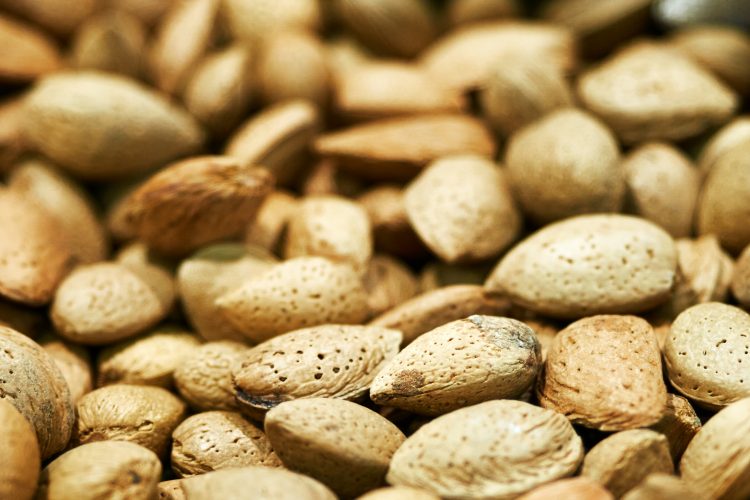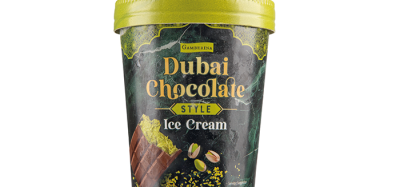Why are consumers and manufacturers choosing almonds?
- Like
- Digg
- Del
- Tumblr
- VKontakte
- Buffer
- Love This
- Odnoklassniki
- Meneame
- Blogger
- Amazon
- Yahoo Mail
- Gmail
- AOL
- Newsvine
- HackerNews
- Evernote
- MySpace
- Mail.ru
- Viadeo
- Line
- Comments
- Yummly
- SMS
- Viber
- Telegram
- Subscribe
- Skype
- Facebook Messenger
- Kakao
- LiveJournal
- Yammer
- Edgar
- Fintel
- Mix
- Instapaper
- Copy Link
Posted: 18 February 2022 | Joshua Minchin (New Food) | No comments yet
With plant-based alternatives showing no sign of slowing down in terms of growth, New Food asks why one nut seems to be dominating as a key ingredient.


There is no let-up in the progress of plant-based as a sector, nor in the snack market either. A crucial group of ingredients underpinning the current growth in both is nuts, and more specifically the humble almond which is predicted to experience healthy growth over the next couple of years or so.
Some are anticipating the almond market to reach a global value of more than $12 billion by 2025. One of the main drivers behind this boom is the adoption of almonds by a variety of food manufacturers as a key ingredient, whether that’s in snacks or as a milk alternative.
…But why almonds?
Health benefits
Almonds boast quite the nutritional profile; a small handful contains just under 10 percent of an adult male’s daily protein intake and a little over 10 percent of the recommended fibre intake, plus plenty of vitamins and minerals.
“Almonds are a recognised source of protein, fibre and good fats, all macronutrients that we need to be consuming more of as a society,” confirmed Joe Taylor, Co-founder of nut-based snack manufacturer Real Handful.
“In the UK, nine of the top 10 snacks by popularity [generally] offer very little nutritionally and are high in sugar or fat (crisps/chips, sweets, breads, biscuits, cake, etc.). Almonds, and nuts in general, would have a huge macro benefit to the consumer if enjoyed as an alternative to these less nutritious snacks. For example in the UK, driving consumption of nuts over potato crisps (chips) would remove 65 million kilograms of carbohydrates from Brits’ diets whilst adding 46 million kilograms of fibre and 31.5 million of protein.”


Will we see more popular snacks replaced by nut-based alternatives?
The last few years have also seen some interesting studies published that suggest that almonds might continually delivering on the health front once they enter our digestive system. Indeed, one such study has suggested that not all calories are created equal, with those delivered via almonds not absorbed fully by the digestive system in the same way that calories from other sources are.
“There seems to be a bioaccessibility issue with nuts, as other researchers have shown,” lead author, John Sievenpiper, MD, PhD, in the Department of Nutritional Sciences at the University of Toronto, told Eat This, Not That!. “A calorie labelled may not be a calorie absorbed, and that may change the perception that nuts are healthy but should be eaten in moderation due to high fat and calorie content.”
In essence, the study suggests that because the body might not absorb the calories provided by nuts as well as it does from other sources, fears around consuming too much fat and calories as a result of snacking on nuts may be inconsequential.
So why do manufacturers choose almonds over other nuts?
The health benefits of almonds perhaps explain why consumers are opting for this nut over other snacking options, but why do manufacturers choose the nut as an ingredient base for their products?
“We find that almonds offer a superior eating experience when combined with many flavours. For example we launched our first ever Festive Nut Snacking range in 2021, which was sold in three major supermarkets in the UK. This range included a sell-out ‘Vegan Brandy Cream Almond’ variety and we’re looking to expand this innovative range further in 2022,” said Taylor.
The malleability of almonds is certainly a positive for manufacturers, especially when they are trying to create ever-more daring flavour profiles for their products. The adaptability offered by the nut has also accounted for its increased use in creating plant-based and vegan alternatives to popular products.
However, all those nutritional and manufacturing benefits comes a cost – but is that cost something that manufacturers (and therefore consumers) are willing to accept?
“We do find that whilst almonds are more expensive than a peanut, for example, consumers associate almonds with health over other nut varieties and as a result they are willing to pay the premium required. We just make sure that we are careful about portion and pack sizing to ensure we are offering good value as well as delicious snacks,” revealed Taylor.
As alternatives to our favourite snack products continue to grow in popularity and plant-based alternatives march onwards with no sign of slowing down, it will be interesting to see if that optimistic growth vision for the almond market is achieved. If more studies are conducted that prove the health benefits of almonds and consumers continue to accept a high price point as a trade-off, there is no reason the future cannot be even brighter for this particular nut.
Related topics
Fats & oils, Health & Nutrition, Ingredients, Plant based, Proteins & alternative proteins, Research & development, retail, Trade & Economy








